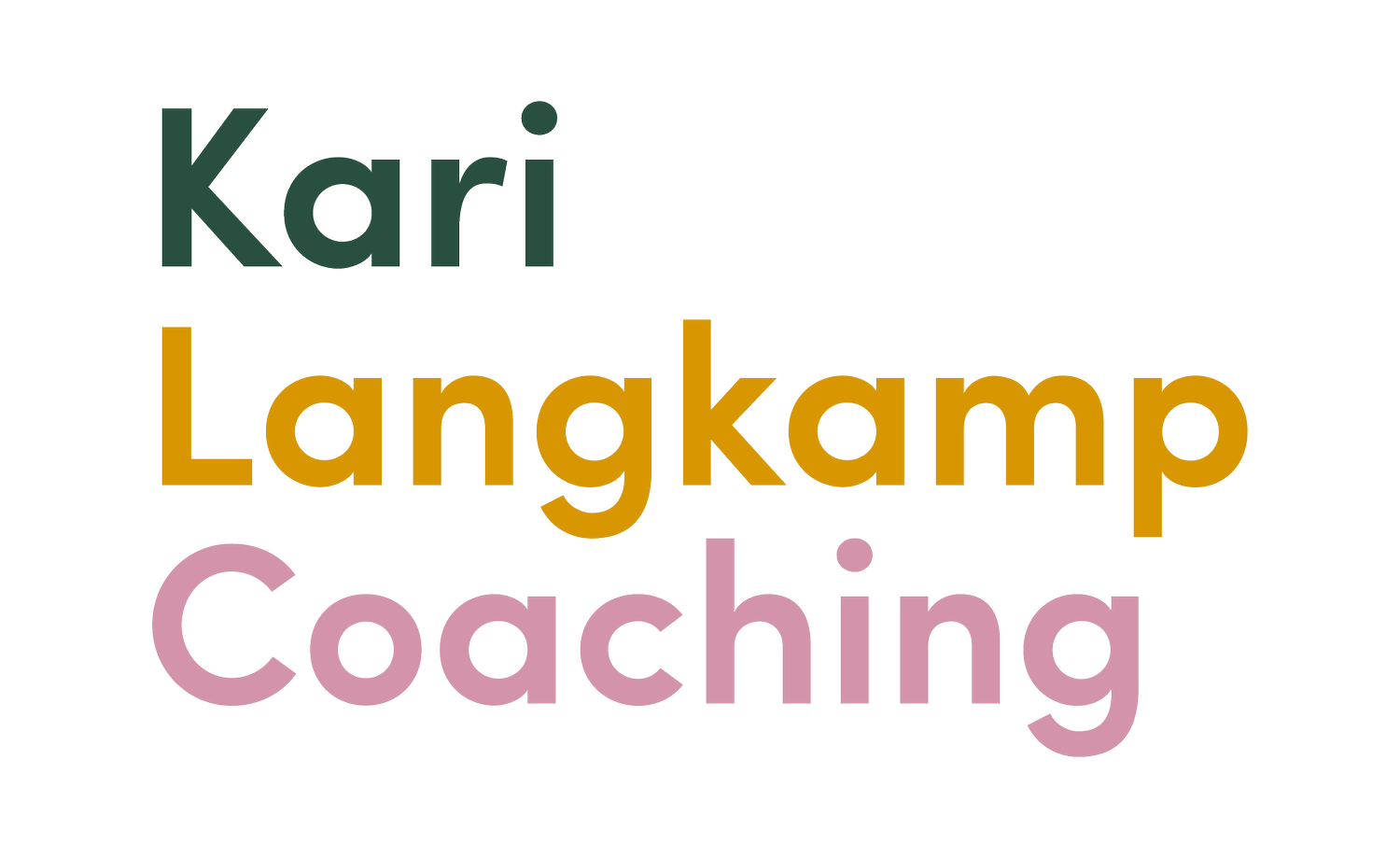Coaching for Your Life - By Kari Langkamp
Coach Yourself?!
For the past four months, as part of an advanced training, I committed to daily self coaching. Before I share lessons learned, I’m guessing you are wondering what coaching yourself means. Think of it like daily journaling or morning pages, but self coaching takes this to another level. You don’t just write your thoughts on the page, you explore them. Maybe this sounds like a lot more work, but I promise it’s not.
And why commit to this? Because how we think determines the results we create in our lives. If I don’t recognize the story I’m telling myself, it is hard to change it. For example, If I tell myself that I’m not doing enough or that I’ll never be able to change, I’m not likely to take the actions necessary to create the life I want.
According to the Cleveland Clinic’s Health Brain website, “Your brain is a three-pound universe that processes 70,000 thoughts each day….” That’s a lot of thoughts.
While many people hire coaches, trainers or consultants to help them reach a goal, self coaching can be powerful too. Using this process helps you to sort through the thoughts that are “sticky” or holding you up. Just because your brain offers you a thought does not mean it is true, but the results you create in your life are completely dependent on the quality of your thinking. Cue the common motivational posters and quotes you may have seen before:
“Change your thoughts and you change your world.” -Norman Vincent Peale;
“A man is but the product of his thoughts what he thinks, he becomes.” -Mahatma Gandhi;
“The happiness of your life depends upon the quality of your thoughts: therefore, guard accordingly…” -Marcus Aurelius.
In the self coaching model that I use, everything goes into one of five categories: circumstances (facts), thoughts (what we make the facts mean in our brain), feelings, actions (what you do when you feel this way), and results (what you create when you think, feel and act this way). My process is to just write what is on my mind for a set amount of time, then go back through and look for what is a fact and what is a thought, and then investigate my thoughts.
As a certified coach, I think human brains are fascinating and I had been using this tool myself since 2019, but not always consistently. But starting in June, I actually used this process every day, and I’ve learned a lot about myself:
My brain is sneaky. Even on good days when I would review my journaling, I noticed that still had little “should” thoughts sneaking in. “I should have figured this out already” or “I should be further along,” can sound useful and like they are facts, but they aren’t and they don’t inspire empowered action.
Fact-checking my brain is a daily process. When I scan what I have written down most days, I still often want to believe it’s all true. But on closer inspection, there are lots of stories that my brain is creating to make sense of the actual facts, and not all of them serve me. The power is in knowing that the story is mine to write, and I get to choose.
Asking powerful questions leads to powerful answers. Some days, it is tempting to just write out my thoughts and then move on with my day. But, the most impact comes when I choose to ask myself great questions. As I faced another challenge, I noticed that I was thinking “this is going to be hard” and I was then making it harder because I believed that! But when I questioned, “What else could be true?” I came up with creative solutions that were not available from the “it’s going to be hard” mindset.
Celebrating your wins! After four months of inspecting my thoughts, I am keenly aware that I am really hard on myself. Allowing myself to acknowledge my progress and success has been powerful fuel to move forward.
Decide to believe. I spent the first two months exploring only the negative thoughts I was having, but there is also power in choosing your thoughts intentionally and practicing the good ones too. I’ve learned that there really isn’t much of a downside in choosing to believe the goal is possible. The worst thing that can happen is that I might feel disappointed, but I’ll feel that right now if I decide in advance it isn’t possible.
By investing just 10-15 minutes in this process every day for the last four months, I have learned a lot about myself. This awareness has helped me move forward and take on things I hadn’t even considered before and be more present for today.
